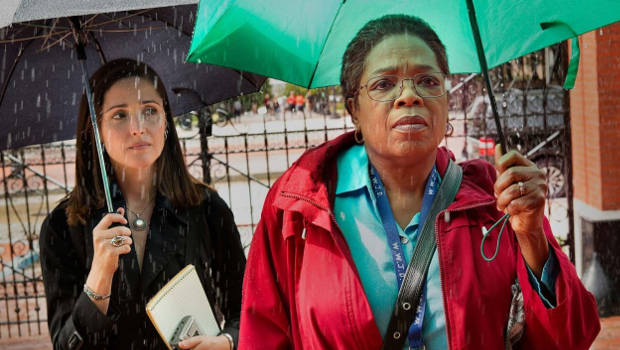Oprah shines light on Henrietta Lacks and the ethics of genetic research

Dr. Evette Ludman talks about Oprah’s HBO production of The Immortal Life of Henrietta Lacks and the ethical issues still alive in genetic research today.
by Evette Ludman, PhD, Kaiser Permanente Washington Health Research Institute Senior Research Associate
I first learned about HeLa cells in biology class. The first human cell line to survive and grow in a lab, HeLa cells have been the foundation of countless medical breakthroughs — from vaccines to cancer treatment to in vitro fertilization.
It was much more recently that I learned about Henrietta Lacks. Henrietta was the 31-year-old African-American woman from whom HeLa cells were taken, without her knowledge or consent, before she died of cervical cancer in 1951.
Like many people, I came to know Henrietta’s story thanks to Rebecca Skloot’s bestselling book, The Immortal Life of Henrietta Lacks, published in 2010. Now, in a movie by the same name, Oprah Winfrey and HBO are bringing Henrietta’s story to life.
Legendary story highlights modern-day ethical questions
Oprah’s HBO production focuses on the Lacks family who, like Henrietta, had no idea her cells had been taken and used in research. Even as HeLa cells were revolutionizing medicine across the globe, Henrietta’s husband and five children remained in the dark — living in poverty and without essential health care. Oprah stars as Henrietta’s daughter Deborah Lacks, who worked alongside Skloot to tell the story of the mother she never knew — and to learn about Henrietta’s legendary but unwitting contribution to modern medicine.
The movie serves as a poignant reminder that the issues of transparency and informed consent in genetic research are still important today. We’ve come a long way since the 1950s, but many important ethical questions remain:
- How can we ensure that consent for genetic research is truly informed?
- What information do people want to know when making their decision?
- Should people have a say in which studies can use their genetic information?
Study participants: We’re ‘glad you asked’
Studying ways to make consent for genetic research more participant-centered is a priority of mine dating back to the “Glad You Asked” study, which colleagues and I published in 2010 — the same year that Henrietta’s story sat atop the bestseller’s list for several months.
The study came about when our research team was preparing to submit participant information from an ongoing study into a new federal research database. Our original consent form for the study had mentioned data sharing in a general way, but it had not specifically asked participants about sharing their information with the federal database.
So we contacted our participants to ask for their consent and found that 86 percent were willing to let us share their information with the database. Even more significant from an ethical perspective was that 90 percent of those who consented told us that it was important to them that we had asked.
Fast forward to today, and it’s clear that issues surrounding the ethics of consent for genetic research are still important. Our nation’s push toward personalized medicine has sparked widespread efforts to create large biobanks for future genetic research. One example is the federal government’s Precision Medicine Initiative (PMI), which aims to collect tissue samples from one million volunteers for use in genetic research on disease treatment and prevention.
People who donate tissue samples to the PMI biobank consent to broad, open-ended use of their genetic material and other de-identified data. In other words, donors don’t get to pick and choose which studies will use their samples and related health information. My colleagues and I wondered how people feel about this broad model of informed consent, so we conducted a study to learn more about their attitudes.
Published last month in the American Journal of Human Genetics, our study found no difference in people’s willingness to contribute to a biobank based on how broadly their consent applied.
Consistent with previous findings, however, the study also found that African Americans and people of lower socio-economic status were less likely overall to say they would donate to a biobank, regardless of the consent model used.
Because the PMI and other biobank efforts rely on donations from volunteers, we hope that people of all backgrounds will want to donate. Otherwise, biobank research will be less applicable — and therefore less valuable for improving health across diverse populations.
Our research and the story of Henrietta Lacks reminds us that we must continue to respectfully engage with the individuals and communities who are as much stakeholders in research as we are. Being as open and transparent as possible helps us build trust and shows respect. I think Henrietta and her family would agree.
“The Immortal Life of Henrietta Lacks” airs April 22 on HBO + streaming. View


